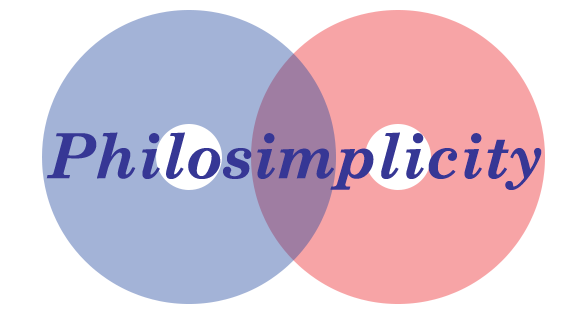Likely by some sort of mix-up, I never imagined I’d create a site like this… More seriously, the short answer is I don’t really remember because it wasn’t a deliberate process; however, I can discuss things in my life that broadly guided me towards philosophy.
So, I went to school with the intention of studying biology, and while I loved science I was unsatisfied with the major so I switched to an interdisciplinary humanities program where I was much happier. It was here that I studied political philosophy which got me interested in ethics. Around the same time, I was interested in theological questions posed by ancient and medieval philosophers which got me interested in metaphysics.
Right before I left biology, I took some psychology classes and became obsessed with personal experience as well as the methods by which we come to know things. This spurred my interest in epistemology. I also developed an interest in writing science fiction and constructing thought experiments that would question my own intuitions.
Finally, as a writer, over the years I’ve learned that language is imprecise and ambiguous. As someone who loves to write, I find myself my interested in ideas rather than the words people use to express them. As these various interests converged, I got more and more into philosophy. Within philosophy, I found a whole field of people who were just as interested in ideas as I was.
Given that people have been talking about philosophy for millennia, it can be somewhat of a large, foreboding, and off-putting subject matter. Imagine showing up to a swanky party long after it’s begun — everyone’s already doing their thing, and you don’t know anyone. As someone who has attended a few galas, I know it’s not always fun trying to jump into conversations mid-way at a high-brow function. Anyway, a lot of newcomers to philosophy think they have to start with someone official sounding like Plato in order to truly begin learning about the field, but I would almost always caution against simply jumping into primary sources unless you’re somewhat familiar with the topics the author is talking about. Maybe I’m just salty from having Hegel as my first ever assigned philosophy reading, but I think knowledge can either come from reading secondary sources or going to resources that better tease out philosophy’s subject areas. Don’t get me wrong, primary sources are extremely important, but given that a lot of philosophy is written in response to other philosophers I think it’s a bit of a task to expect a newcomer to simply enter the discourse and hold their own.
So, I’ve talked a lot about what you shouldn’t do, but what should you do? Well, pick a topic you like and want to know more about, something ideally relating to society or life. It can be anything — identity, fairness, the good life, the meaning of life, the nature of beauty, time travel, whatever. Read up on what people are saying about that topic in the present, and then if you’re inclined, look for older philosophers who spoke on these subjects. The important part of philosophy isn’t knowing what dead people said about something, it’s about coming to your own opinion. With that in mind, the whole point of reading primary sources is to inform you what other people thought so you can develop nuance in your own understanding of a subject.
(I should make a disclaimer, this response is assuming you’re interested in philosophy in a non-academic capacity. So if you’re asking how you should get into a philosophy department, that’s a different question)
Currently reading
The Death of Expertise: The Campaign against Established Knowledge and Why it Matters: Tom Nichols, the author of this book isn’t a philosopher but he tackles an epistemological problem that I’ve mentioned my interest in, the novice-expert problem. As part of my learning on this subject, I’m reading a variety of authors, including Nichols.
The Philosopher’s Tool Kit: Philosopher Julian Baggini and his co-author have written a book that’s a good introduction to philosophical reasoning for undergrads and non-philosophers. While I’m familiar with the subject matter of lots of philosophical topics, philosophical argumentation isn’t something I’ve formally studied. I’ve picked up this book as part of my year of Shoshin or the approaching of subjects with a beginner’s mind, even subjects that I might already have some knowledge about.
Starmaking: Realism, Anti-Realism, and Irrealism: This is a philosophy book that I am slowly making my way through. Starmaking is a collection of essays by philosophers Nelson Goodman, Hilary Putnam, and Israel Scheffler on what I can only describe as the strangeness of epistemology. The dialog that emerges from the essays teases out the degree to which we as subjects of the universe influence and shape our notions of coherence, realness, and certainty. I likely won’t touch on any of the themes of these essays for some time given their scope.
Previously read
An Introduction to African Philosophy: This book is a great primer on the issues of African philosophy and was an integral part of the research for this blog’s African Philosophy post. It is a bit outdated though, as the last 20 years in the field have seen some advancements that aren’t reflected in the book.
Philosophy before Socrates: Exactly what it says on the cover — this book is about the Pre-Socratics. From what I understand, it’s probably one of the most comprehensive books on the subject. The book starts by articulating the groundwork that earlier, non-philosophers like Hesiod had established for future philosophers as well as the historical contexts of the eras leading up to the time of the Pre-Socratics. From there, particular attention and detail is given to each Pre-Socratic thinker as an individual, as well as their work and contemporary influences.
